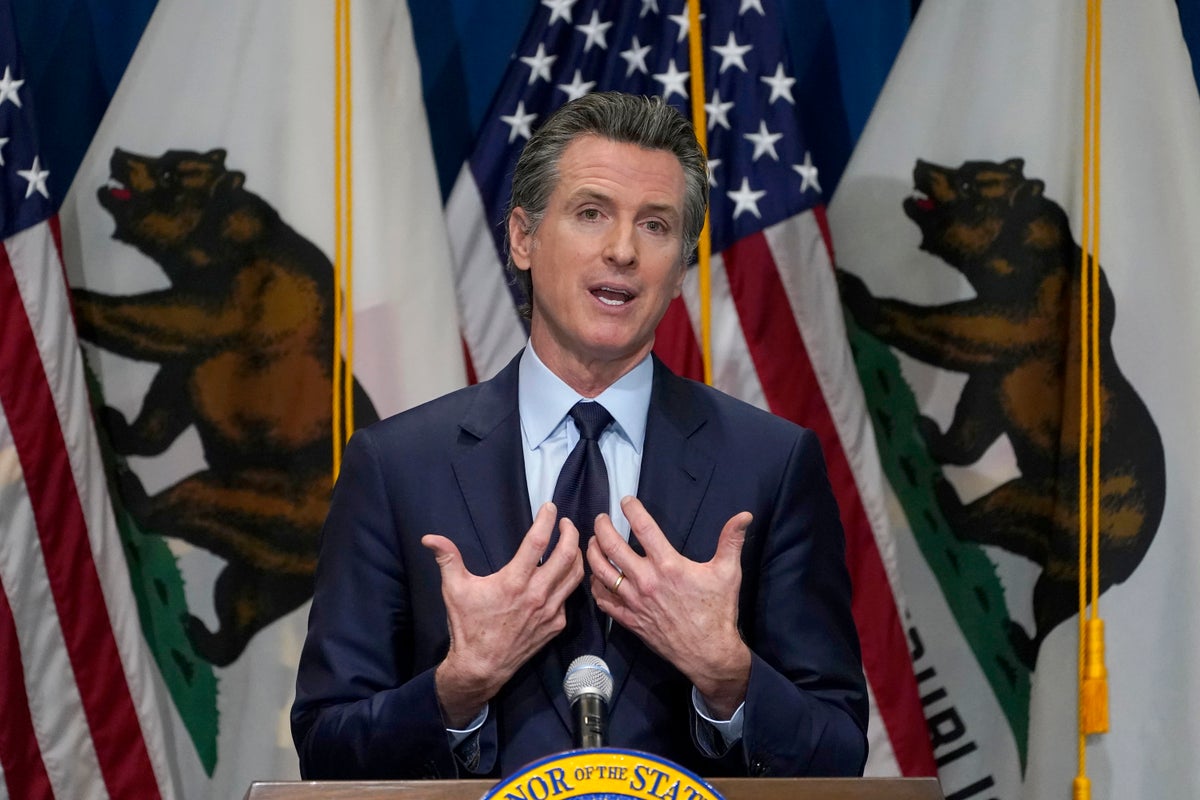
California Democrats gambled by accelerating the date for the state’s Sept. 14 recall election that could cost Gov. Gavin Newsom his job. Their hope is that during a relatively brief stretch of about 10 weeks, the economy will continue to rebound, coronavirus cases will remain low and the embattled Democratic governor can avoid any politically embarrassing missteps.
The risk is that it doesn’t go that way.
The mid-September date was formalized Thursday by Lt. Gov. Eleni Kounalakis, a Democrat and Newsom ally, after election officials certified that enough valid petition signatures had been turned in to qualify the election for the ballot.
Her decision came after political maneuvering in the Democratic-dominated Legislature that cleared the way for a late-summer election, rather than the fall contest many had been expecting.
Newsom has steadied his public standing since the tumultuous depths of the pandemic, when his popularity declined. With recent polls showing Newsom would beat back the recall, Democrats believe the earlier date will benefit his chances.
Businessman John Cox one of the leading Republicans in the race, shrugged off the strategy.
Newsom’s “insiders and allies have done their best to manipulate the election date … but it doesn’t matter,” Cox said in a statement.
Wildfires “are starting to rage, we’re still not sure schools will open on time, homelessness is out of control and taxes are way too high,” Cox added. “We have shortages of electricity and water. Crime is out of control. … Newsom will be recalled.”
The election in the nation’s most populous state will be a marquee contest with national implications, watched closely as a barometer of the public mood heading toward the 2022 elections, when a closely divided Congress again will be in play.
The announcement will set off a furious burst of campaigning through the California summer, a time when voters typically ignore politics to enjoy vacationing, barbecuing and traveling.
It’s not uncommon in California for residents to seek recalls but they rarely get on the ballot — and even fewer succeed. A sitting governor has been ousted just once in the state, when unpopular Democrat Gray Davis was recalled in 2003 and replaced by Republican Arnold Schwarzenegger.
Many voters have yet to pay attention to the emerging election. And while polls have shown Newsom surviving the recall, those same surveys reveal signs of an unsettled public. Independent voters, for example, tend to view his job performance skeptically and most say the state is going in the wrong direction.
Amid a homeless crisis and a continuing pandemic, the election will give voters in the heavily Democratic state a stark choice between Newsom’s liberal-minded policies or a change that could bring a Republican into the governor’s office for the first time since Schwarzenegger’s tenure.
Republican candidates have depicted Newsom as an incompetent fop whose bungled leadership inflicted unnecessary financial pain statewide, while Democrats have sought to frame the contest as driven by far-right extremists and supporters of former President Donald Trump eager to stop Newsom’s agenda.
Newsom’s campaign has described the election as “a naked attempt by Trump Republicans to grab control in California.” Kevin Faulconer, a former San Diego mayor and another leading Republican in the race, predicted that “retirement is coming for Gavin Newsom.”
While a final date wasn’t set until Thursday, the campaign has been underway for months after it became clear that organizers had gathered more than the required 1.5 million petition signatures needed to place the recall on the ballot.
Conservative talk show host Larry Elder, 69, said in a statement Wednesday night that he was seriously considering entering the race and would announce his decision early next week. His candidacy would give the Republican field another jolt of celebrity sparkle — he’s known through his nationally syndicated radio show and appearances on Fox News.
Along with Faulconer and Cox, who was defeated by Newsom in 2018, other Republicans who have said they intend to run include former U.S. Rep. Doug Ose and reality TV personality and former Olympian Caitlyn Jenner.
The GOP field is expected to continue to grow: Candidates have until July 16 to file papers to declare their candidacy.
In the recall election, voters will be asked two questions: First, whether Newsom should be ousted, and second, if he is removed, who from the list of candidates should replace him.
Tom Del Beccaro, a former head of the state Republican Party who chairs Rescue California, one of the groups promoting the recall, said Elder would help drive support for the critical first question in his home Los Angeles area, the most populous in the state.
“Statewide races in California are often won or lost in L.A. county,” said Del Beccaro, who is not aligned with any candidate. Elder “is going to bring a constituency that is going to help us get a ‘yes’ on the question No. 1.”
Elder, a Black man, also would bring more diversity to the Republican ranks.
Claremont McKenna College political scientist Jack Pitney said Elder’s entry into the race would be a setback for Cox because “Elder would appeal to the hard-core Republican, conservative base that would have been Cox’s base.” Faulconer is considered a GOP moderate.
Pitney doubted Elder’s race would play a significant factor, with the Black vote typically running strongly Democratic. Elder “has a reputation for being a provocative conservative, not a champion of African American interests,” Pitney said.
___
Blood reported from Los Angeles.
Related posts:
Views: 0
 RSS Feed
RSS Feed

















 July 2nd, 2021
July 2nd, 2021  Awake Goy
Awake Goy  Posted in
Posted in  Tags:
Tags: 
















